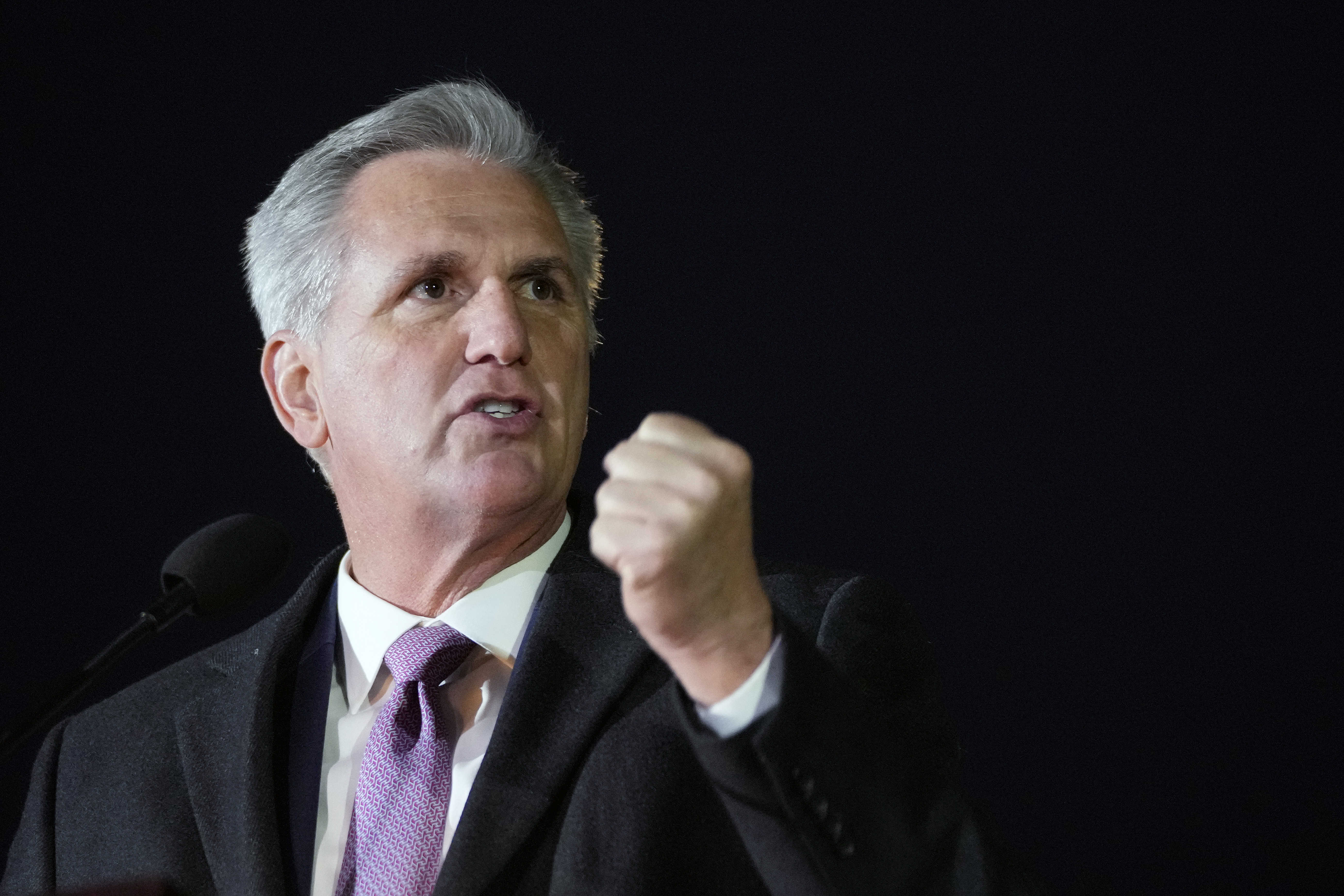Kevin McCarthy clears GOP hurdle on path to speakership


A free daily email with the biggest news stories of the day – and the best features from TheWeek.com
You are now subscribed
Your newsletter sign-up was successful
House Minority Leader Kevin McCarthy (R-Calif.) cleared the first major hurdle on his path to become the next Speaker of the House, winning the GOP nomination for the position by 188 to 31 on Tuesday.
While McCarthy was widely expected to become the party's nominee for the position, he faced a fierce, last-minute challenge from Rep. Andy Biggs (R-Ariz.) representing the GOP's right flank, still reeling from the Republicans' lackluster results during the 2022 midterms. Biggs had been backed by MAGA Republican figures like Rep. Matt Gaetz (R-Fla.) who reportedly worked to actively whip votes against McCarthy in the lead-up to Tuesday's vote. McCarthy, however, enjoyed the public support of both former President Donald Trump, and — perhaps surprisingly — Rep. Marjorie Taylor Greene (R-Ga.) who called any potential challenge a "bad strategy" for the party.
Although McCarthy earned the overwhelming GOP support for the speaker's gavel, he faces a significantly more difficult trial when the full House of Representatives votes on who should become the next speaker. Republicans are bracing for a razor-thin congressional majority in which even a few defections could scuttle the necessary 218 votes needed to assume the speakership. With more than 30 members of his own party already voting against him, McCarthy now needs to win their support if he hopes to reach the requisite count. Already Rep. Don Bacon (R-Ne.) has threatened a willingness to work with Democrats in support of a moderate nominee should McCarthy's campaign fail.
The Week
Escape your echo chamber. Get the facts behind the news, plus analysis from multiple perspectives.

Sign up for The Week's Free Newsletters
From our morning news briefing to a weekly Good News Newsletter, get the best of The Week delivered directly to your inbox.
From our morning news briefing to a weekly Good News Newsletter, get the best of The Week delivered directly to your inbox.
A free daily email with the biggest news stories of the day – and the best features from TheWeek.com
Rafi Schwartz has worked as a politics writer at The Week since 2022, where he covers elections, Congress and the White House. He was previously a contributing writer with Mic focusing largely on politics, a senior writer with Splinter News, a staff writer for Fusion's news lab, and the managing editor of Heeb Magazine, a Jewish life and culture publication. Rafi's work has appeared in Rolling Stone, GOOD and The Forward, among others.
